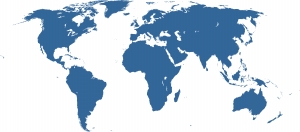
The outlook for the global economy has dimmed as a result of emerging-market weakness and slumping commodities prices, according to the latest forecast from the International Monetary Fund (IMF).
The IMF is now projecting that global growth in 2016 will come in at 3.4%, rising to 3.6% in 2017. Both projections represent a reduction of 0.2 percentage points from its previous forecast in October.
“These revisions reflect, to a substantial degree, but not exclusively, a weaker pickup in emerging economies than was forecast in October,” the IMF’s forecast says, adding that U.S. growth momentum “is now expected to hold steady rather than gather further steam.”
For Canada, the IMF continues to see 1.7% growth in 2016, unchanged from its previous forecast. Yet, it has cut its call for growth in 2017 to 2.1%, which is a 0.3 percentage point reduction from its prior projection.
See also: Slideshow: Prospects for growth in certain regions
“In advanced economies, a modest and uneven recovery is expected to continue, with a gradual further narrowing of output gaps. The picture for emerging market and developing economies is diverse, but in many cases challenging,” the IMF’s forecast says. “The slowdown and rebalancing of China’s economy, lower commodities prices and strains in some large emerging-market economies will continue to weigh on growth prospects in 2016–17.”
Growth in emerging markets is now projected to come in at 4.3% and 4.7% in 2016 and 2017, respectively, down by 0.2 percentage points from previous projections. Growth in China is expected to slow to 6.3% in 2016 and 6% in 2017, “primarily reflecting weaker investment growth as the economy continues to rebalance.”
Despite the global growth concerns, the IMF’s forecast says that growth is expected to accelerate in 2017 as countries that are currently in economic distress — such as Brazil, Russia and some countries in the Middle East — see conditions improve.
Still, the risks to the global outlook remain tilted to the downside, the IMF’s forecast warns, including further weakness in emerging-market economies, China’s rebalancing undergoing a sharper-than-expected slowdown, lower commodities prices and rising interest rates in the U.S.
“If these key challenges are not successfully managed, global growth could be derailed,” the IMF’s forecast cautions.
In addition, a “sudden rise in global risk aversion, regardless of the trigger,” could cause financial strains in vulnerable emerging market economies, the IMF’s forecast says. “Indeed, in an environment of higher risk aversion and market volatility, even idiosyncratic shocks in a relatively large emerging market or developing economy could generate broader contagion effects.”
With the weaker growth outlook and risks remaining on the downside, the need for policy-makers to take actions to support demand and to effect structural reforms is “even more urgent,” the IMF’s forecast says.
“In advanced economies, in which inflation rates are still well below central banks’ targets, accommodative monetary policy remains essential,” the IMF’s forecast says. “Where conditions allow, near-term fiscal policy should be more supportive of the recovery, especially through investments that would augment future productive capital.”
Structural reforms should focus on employment, tackling legacy debt and reducing barriers to entry in product and services markets, the IMF’s forecast suggests.